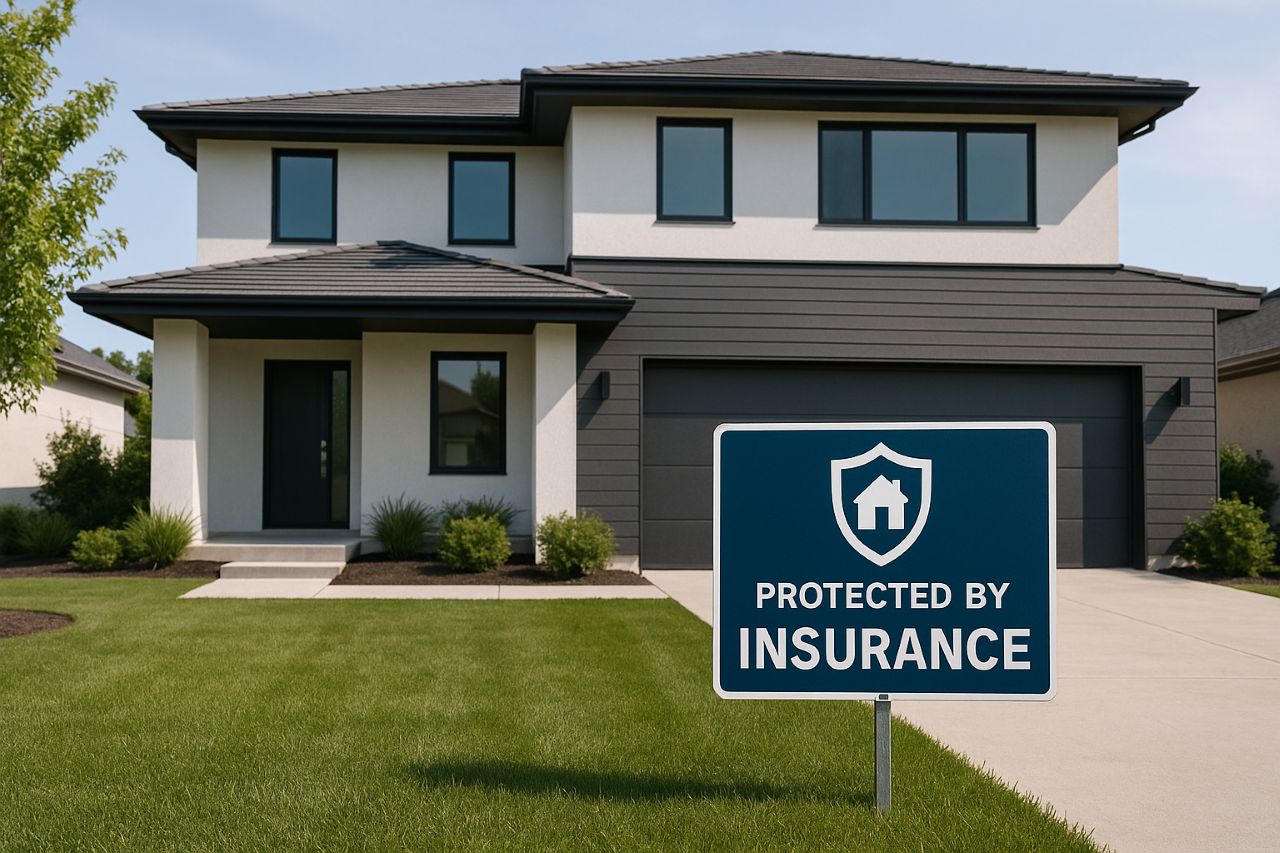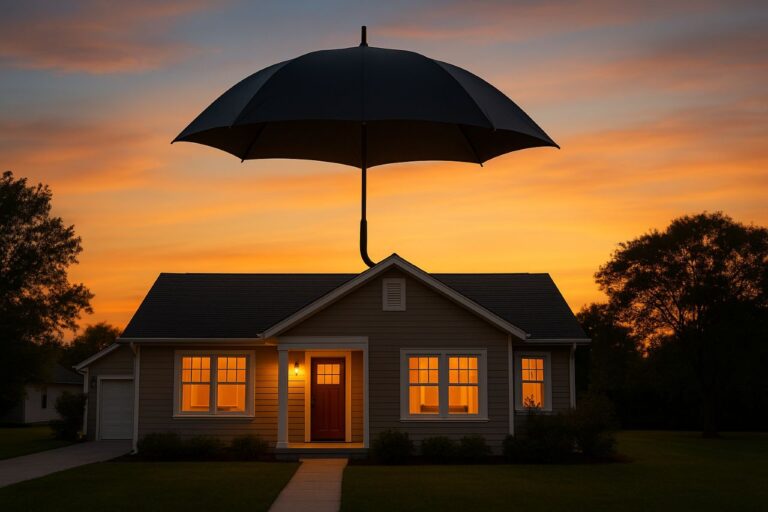AFH Insure Homeowners Guide: Best Coverage Tips
AFH Insure is a name that will stick with homeowners who want total protection for their most prized possession—their home. As an independent insurance agency offering total-service support, AFH Insure has specialized in formulating customized insurance coverage tailored to the specific needs of every homeowner. Their dedication to securing specialized coverage ensures that clients have full protection against unexpected events that will threaten their financial stability.
In the modern changing environment, with natural catastrophes and sudden events becoming more frequent, it is paramount to understand the ins and outs of homeowners insurance. The article takes you through the paramount features of homeowners insurance, with emphasis on the vital realities every homeowner needs to know. From covering various aspects, typical errors, to optimizing your policy, you will be better prepared to protect your home and finances.
Table of Contents
Understanding Homeowners Insurance: The Basics
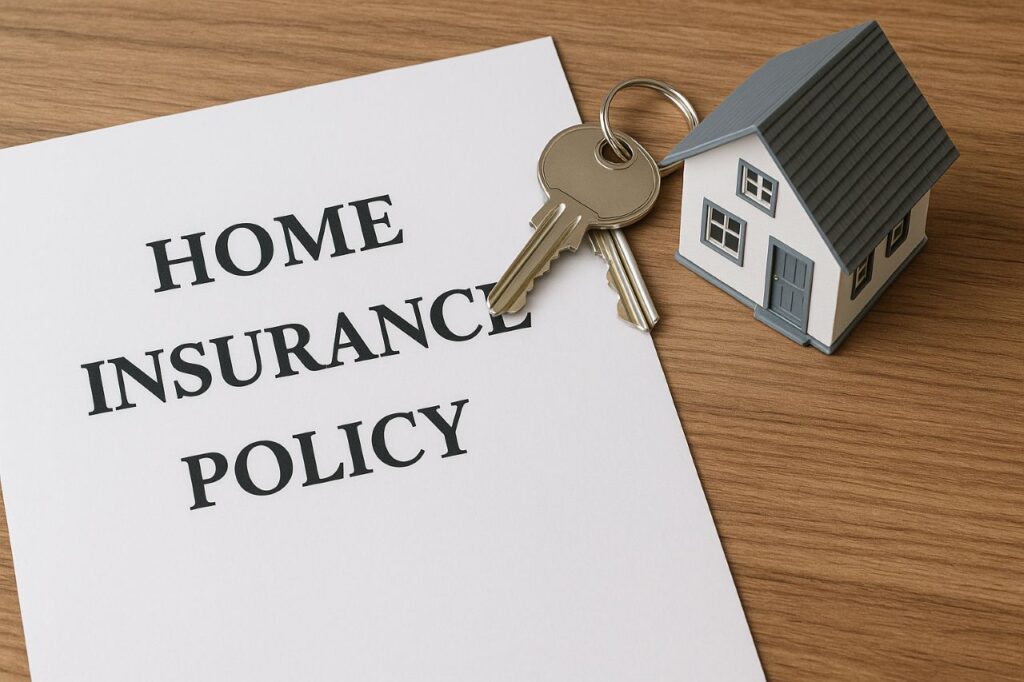
What is Homeowners Insurance?
Homeowners insurance is an insurance policy that offers financial assistance in case of losses resulting from disasters, burglary, and accidents. It insures the house, personal property, liability for personal injury, and extra living expenses in case your house becomes unlivable. This broad coverage protects homeowners against unexpected circumstances that would result in huge financial losses.
Key Components of a Standard Policy:
- Dwelling Coverage: Dwelling coverage insures the physical building of your home from covered perils such as fire, windstorms, and hail. This would include walls, roof, and appliances that are built in. An example would be if a nasty storm destroyed your roof. Dwelling coverage would assist in paying for the repairs.
- Personal Property Coverage: This element encompasses personal items like appliances, electronics, and clothing. Should your property be stolen or destroyed as a result of a covered occurrence, personal property coverage can pay to have it replaced. Keep in mind that some high-value items could be subject to coverage limits, and extra endorsements may be required for complete protection .
- Liability Protection: Liability protection offers protection in the event of an injury to someone on your property when you become legally liable. It can pay for medical costs, attorney fees, and awards granted in a lawsuit. For instance, if a house guest trips and falls inside your house, liability protection can pay for the resultant costs.
- Additional Living Expenses (ALE): ALE covers temporary residence and living expenses if your home is not fit for living in because of a covered loss. This may be hotel charges, restaurant food, and other living expenses while your home is being repaired or rebuilt.
Understanding these key components of homeowners insurance is crucial for ensuring comprehensive protection of your home and personal assets. Regularly reviewing and updating your policy can help maintain adequate coverage as your needs change over time.
The Importance of Adequate Coverage
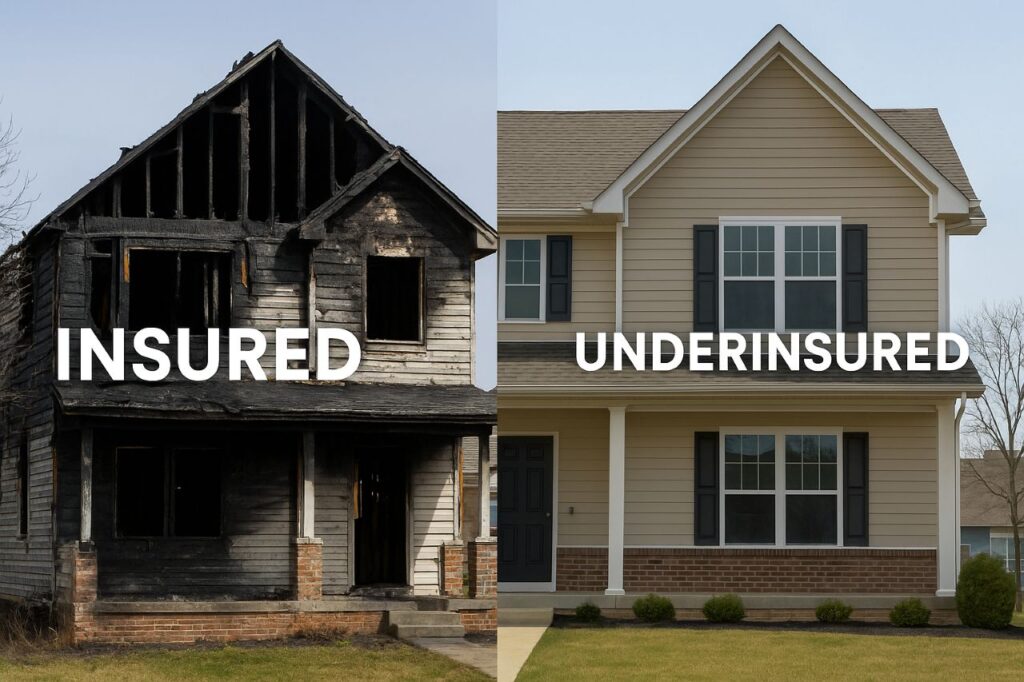
Assessing Your Coverage Needs:
Having adequate coverage in your homeowners insurance policy is important for replacing your possessions and rebuilding your house if it is lost. Consideration must be given to construction costs in the area, home improvements, and personal items’ worth. Periodic updating and review of your policy ensure adequate protection as your situation evolves. AFH Insure helps evaluate your home’s rebuild value and contents. Just as you’d budget fuel with a Loves gas station gift card, accurate policy evaluation prevents financial surprises.
Common Coverage Gaps:
- Natural Disasters: Standard home insurance policies exclude coverage for acts of nature like floods and earthquakes. If you live in a high-risk zone, it’s recommended to have separate policies for these hazards to have comprehensive coverage. For example, flood insurance is usually procured from the National Flood Insurance Program (NFIP) or private insurers, whereas earthquake insurance is covered as an endorsement or as an independent policy.
- Valuable Items: Luxury items such as jewelry, art, and collectibles can be worth more than a typical homeowners policy covers. To better safeguard these belongings, consider purchasing a scheduled personal property endorsement or a separate valuable items policy. This way, in case of theft or destruction, you will get sufficient compensation for these items.
- Home-Based Businesses: Home-based business adds extra exposures not covered by a typical homeowners policy. Business equipment, inventory, and liability can be covered separately or endorsed to your current policy. Discuss with your insurance company to determine if extra protection is necessary specific to the activities of your home-based business.
By carefully evaluating your coverage requirements and plugging typical gaps, you can be sure that your home insurance policy will give you comprehensive protection for your house and belongings. Regular visits to your insurance agent and regular policy checks are fundamental steps toward having sufficient cover.
Factors Influencing Homeowners Insurance Premiums

Knowledge of the factors that determine your homeowners insurance premiums is important in order to plan your finances well. Various aspects, from physical home characteristics to individual financial habits, contribute to your insurance charges.
Home Characteristics:
- Location: Your home’s geographical location also greatly affects your insurance rates. Houses located in areas subject to natural disasters—like hurricanes, wildfires, or floods—are usually charged more for insurance because there is a greater chance of damage. For example, homes in wildfire zones along the West Coast, like California, have experienced steep premium increases, with one insurer asking to raise rates by as much as 30% to help pay for growing wildfire losses.
- Age and Condition: Older houses can attract a larger premium because they are likely to have older electrical, plumbing, and structural systems, which can raise the risk of damage. Insurers take the age of a house into consideration while determining premiums because aging components and systems can contribute to higher, more regular claims .
- Construction Materials: The materials that have gone into constructing your house can impact insurance rates. Houses constructed using fire-resistant materials, like stone or brick, can earn reduced premiums than those made with more combustible materials like wood. It is also possible for houses having disaster-resistant, new features to enjoy lower insurance rates.
Personal Factors:
- Credit Score: Insurers often use credit-based insurance scores to assess the risk associated with a policyholder. A higher credit score can indicate financial responsibility, potentially leading to lower insurance premiums. Conversely, a lower credit score may result in higher premiums due to perceived increased risk .
- Claims History: Your claims history can influence your premiums. Policyholders with a history of multiple or large claims are often higher risk, resulting in higher insurance premiums. Having a low claims history can assist in obtaining better premium prices .
- Deductible Amount: The deductible is the dollar amount you’re willing to spend out-of-pocket before your insurance takes effect. Choosing a higher deductible will reduce your premium since you’re taking on more financial risk in the case of a loss. Selecting an amount of deductible, however, that is beyond your available finances can place an unreasonable burden on you at the time of loss.
Through understanding these factors, homeowners are able to make informed choices in order to handle and even lower their insurance costs. Periodically examining your policy and meeting with insurance experts can also help to maximize your protection and expenditure.
Tips for Reducing Homeowners Insurance Costs

Keeping homeowners insurance costs in check is vital for ensuring financial stability. Adopting strategic steps can result in considerable savings without decreasing coverage.
Implement Safety Measures:
- Install Security Devices: Securing your home may reduce your insurance premiums. The installation of burglar alarms, smoke detectors, and deadbolt locks not only defends your property but can also make you eligible for premium discounts. Most insurers provide discounts on homes that have these protection features .
- Upgrade Home Systems: Upgrading the electrical, plumbing, and heating systems in your home can lower the likelihood of damage, which can translate into insurance savings. Well-maintained systems are less likely to break down and require a claim, so your home is a better risk for insurers.
- Disaster-Proofing: Adding disaster-resistant elements, like storm shutters or reinforced roofs, to your home will make your house more disaster-resistant. They not only save your property but could also lower your insurance costs .
Policy Management Strategies:
- Bundle Policies: Having your homeowners insurance bundled with other policies, such as auto insurance, can result in discounts. Bundling policies with the same insurer usually results in a cost savings and makes policy management easier .
- Review Annually: Periodically checking your insurance policy makes sure your coverage is consistent with your needs now. Life events, making changes to your home, or purchasing valuable items may change your insurance needs. Updating your policy can avoid paying too much and being appropriately covered.
- Maintain Good Credit: Your credit rating has the ability to affect your homeowners insurance rates. Insurers frequently employ credit-based insurance scores to measure risk and a superior credit score can result in lower rates. Paying bills in a timely manner and having effective debt management can help your insurance expense positively.
By taking these actions, homeowners can efficiently control and lower their insurance costs while enjoying complete coverage. Periodic meetings with your insurance company can also reveal further areas for savings.
Navigating the Claims Process – AFH Insure
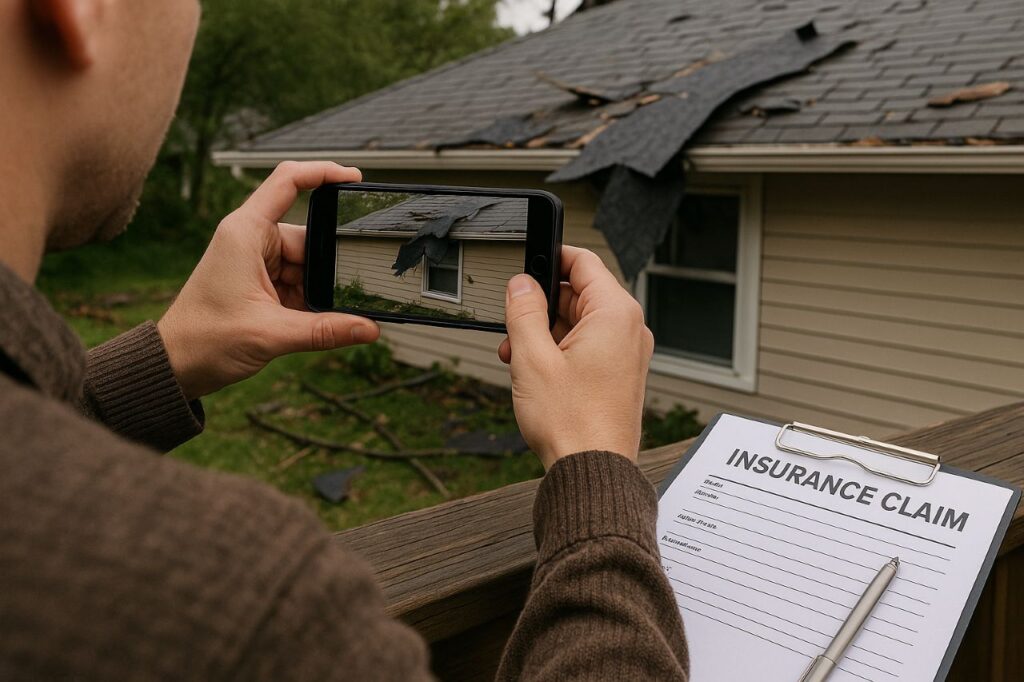
Making a homeowners insurance claim can be complicated, but knowing what to do at each step can facilitate a smoother process. Below is a detailed guide to navigating the claims process successfully.
Steps to Take After a Loss:
- Document the Damage: Start by carefully documenting any damage to your property. Capture clear, dated pictures and videos of damaged areas and items. Document a comprehensive list of damaged or lost items, noting descriptions, dates of purchase, and estimated values. This documentation is significant in supporting your claim.
- Notify Your Insurer ASAP: Report the claim to your insurance company as early as possible. Give them all information and documentation required, such as your policy number, loss details, and evidence you have collected. Early reporting will help streamline the claims process and avert potential problems.
- Prevent Further Damage: Take reasonable action to avoid further damage to property. This could involve covering broken glass, tarping over a damaged roof, or stopping water in order to avoid further flooding. Save receipts for any emergency repairs or expenses incurred, as these could be covered under your policy.
- Keep Detailed Records: Maintain comprehensive records of all communications with your insurance company, including emails, letters, and notes from phone conversations. Also, keep copies of all documents submitted and received, as well as receipts for any expenses related to the loss. These records can be invaluable if disputes arise during the claims process.
Understanding Claim Settlements:
Insurance claims are generally settled using one of two forms of valuations: Actual Cash Value (ACV) or Replacement Cost Value (RCV).
- Actual Cash Value (ACV): ACV coverage pays you for the value of your damaged property at the time of its loss. This is the item’s current worth, taking into account age and wear. For instance, if a five-year-old TV is ruined, ACV coverage would pay out based on its present value, not the cost to buy a new one.
- Replacement Cost Value (RCV): RCV coverage pays you the entire amount of the cost of replacing your lost property with new items of the same type and quality, without deducting depreciation. But insurers can first pay the ACV and ask you to submit receipts for the new items before paying the difference.
It is crucial to comprehend the differences between ACV and RCV when choosing your homeowners insurance policy because it determines the compensation you will get in the event of a claim.
If you follow these steps and comprehend the settlement conditions of your policy, you can better proceed through the homeowners insurance claims process so you can receive the compensation you deserve.
The Role of AFH Insure in Homeowners Protection
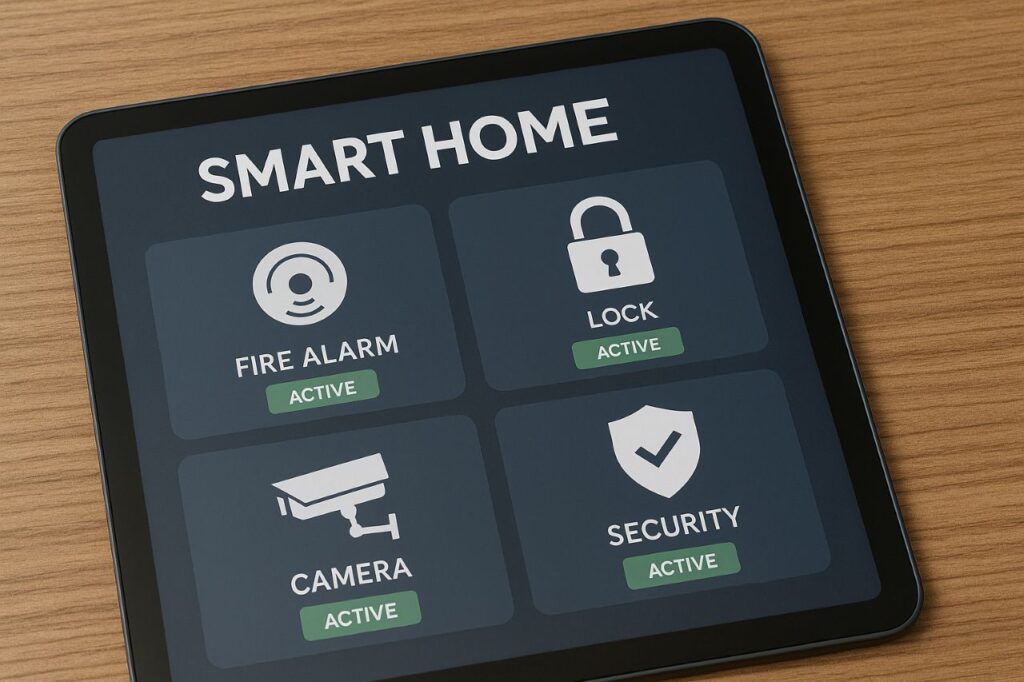
AFH Insure is unique in the homeowners insurance market by providing customized insurance solutions and a high dedication to client education. Their method makes sure homeowners get insurance plans that are specifically based on their individual needs and are well educated about their policies.
- Personalized Insurance Solutions: AFH Insure offers bespoke homeowner insurance policies that fit unique situations. By analyzing factors like property type, location, and individual risk factors, they design policies that provide complete coverage. This bespoke strategy ensures that customers are neither over-insured nor under-insured, giving them peace of mind and financial safety.
- Commitment to Client Education: In addition to selling insurance products, AFH Insure focuses on informing clients about their policies, available coverage, and risk management. AFH Insure is convinced that informed clients are able to make informed decisions about their insurance needs. By means of consultations, educational materials, and prompt customer service, AFH Insure enables homeowners to comprehend and control their insurance.
Through the integration of customized insurance products with a commitment to client education, AFH Insure guarantees homeowners to be adequately covered and educated about their insurance. This comprehensive attitude builds confidence and long-term client relationships for AFH Insure as a trustworthy companion for homeowners insurance.
Final Thoughts: Why Getting the Right Home Insure is More Important Than Ever

Knowing the ins and outs of homeowners insurance is no longer discretionary—it’s imperative. With growing climate dangers, repair bills escalating, and personal wealth on the rise, having a well-defined, all-encompassing insurance strategy is now a vital part of securing one’s financial future. A well-fortified homeowners insurance policy doesn’t simply protect you for mere property loss—it gives you peace of mind amidst unpredictability, allowing you to bounce back from fires, thefts, natural disasters, or even unforeseen liability claims.
By acknowledging the value of proper coverage, keeping up to date with things that affect your premiums, and adopting practical cost-cutting measures, homeowners can make their financial defenses dramatically more robust. From being aware of your dwelling limits to knowing about bundling or upgrading your home’s security systems, what you do today can forestall cataclysmic losses tomorrow. This is where AFH Insure comes in.
AFH Insure is different from standard insurers. They don’t stop at the essentials. They provide customized homeowners insurance options that adjust to your specific needs—whether you’re a first-time homeowner, a longtime homeowner, or someone upgrading to a larger residence. Their client education ensures that you are not simply purchasing a policy—you’re learning, you’re gaining clarity, and you’re taking charge of your insurance choices.
Imagine selecting the perfect essentials for an extended journey. Just as a Loves gas station gift card provides value and flexibility on the road, AFH Insure provides flexible policies and expert advice to guard your home journey step by step.
Ready to Take Action?
Don’t wait until a crisis to find the holes in your coverage. Whether you’re reviewing your existing policy or beginning anew, now is the time to make an educated decision.
Call AFH Insure today to book an appointment, get a personalized quote, and have insurance that actually works for you.
Because keeping your home safe is more than an insurance policy—it’s a vow to your future.
You Must Read: Home Insurance Cancellation Letter: 5 Shocking Mistakes to Avoid Now
Frequenly Asked Question (FAQs)
What makes AFH Insure different from other home insurance providers?
AFH Insure stands out due to its personalized approach. Unlike generic policies, they assess your unique needs—location, property type, and lifestyle—to offer tailored coverage. While you’re shopping for home essentials or even a Loves gas station gift card, you can rest easy knowing your home is protected by a provider that prioritizes customization.
Does AFH Insure cover natural disasters like floods or earthquakes?
Standard homeowners policies typically exclude floods and earthquakes. However, AFH Insure helps clients add optional endorsements or standalone policies for full protection. It’s similar to how a Loves gas station gift card adds flexibility to your travel—you get added peace of mind wherever you are.
Can I bundle my home and auto insurance with AFH Insure?
Yes! AFH Insure offers bundling options that can reduce your overall premium. Much like bundling a Loves gas station gift card with a travel plan, combining policies makes management easier and often leads to discounts.
What is the difference between Actual Cash Value (ACV) and Replacement Cost Value (RCV)?
ACV: Pays the depreciated value of your belongings.
RCV: Covers the full cost to replace items with new equivalents.
AFH Insure lets you choose based on your budget—just like picking between gas-only or full-service options with a Loves gas station gift card.
How often should I review or update my homeowners insurance policy?
It’s best to review your policy annually or after significant life events like renovations, purchasing valuables, or moving. If you’ve added new electronics or even received a Loves gas station gift card as a gift, it might be time to reassess your personal property limits.
Does AFH Insure help with filing claims?
Absolutely. AFH Insure supports clients throughout the claims process—from documentation to settlement. Just like redeeming a Loves gas station gift card is easy and hassle-free, filing a claim with AFH is designed to be smooth and efficient.
Is my home office or business equipment covered under my homeowners insurance?
Most standard policies have limited coverage for business property. AFH Insure can help you add endorsements for full coverage—whether you’re working from home or managing logistics like distributing Loves gas station gift cards as part of your business.
Why is homeowners insurance essential in today’s economic climate?
Homeowners insurance is more than a legal requirement—it’s a financial safeguard against unpredictable losses from fires, storms, theft, or liability claims. As inflation drives up repair and replacement costs, a solid policy ensures you won’t be left financially stranded. Much like how a Loves gas station gift card offers convenience on the road, homeowners insurance offers security during life’s unexpected detours.
What types of homes does AFH Insure cover?
AFH Insure covers a broad range of property types including single-family homes, condos, townhouses, and even manufactured homes. Their policies are customized based on the structure, location, and risk factors—offering tailored protection that evolves with your property. It’s the same idea behind customizing a travel route and topping off with a Loves gas station gift card—you get exactly what fits your journey.
Is homeowners insurance tax-deductible?
Generally, homeowners insurance premiums are not tax-deductible for your primary residence. However, deductions may apply if part of your home is used for rental or business purposes. Always consult IRS guidelines or a tax advisor to assess your eligibility.
Can I get same-day homeowners coverage with AFH Insure?
Yes, AFH Insure often provides same-day coverage after a quick inspection and risk review. This makes it ideal for urgent closings or fast-moving real estate deals. Speedy underwriting ensures you’re protected without delays.
Does homeowners insurance cover roof leaks?
Yes, leaks caused by sudden events like storms or hail are typically covered.
However, damage from neglect or wear and tear is usually excluded.
It’s important to inspect your roof regularly and report damage promptly.

